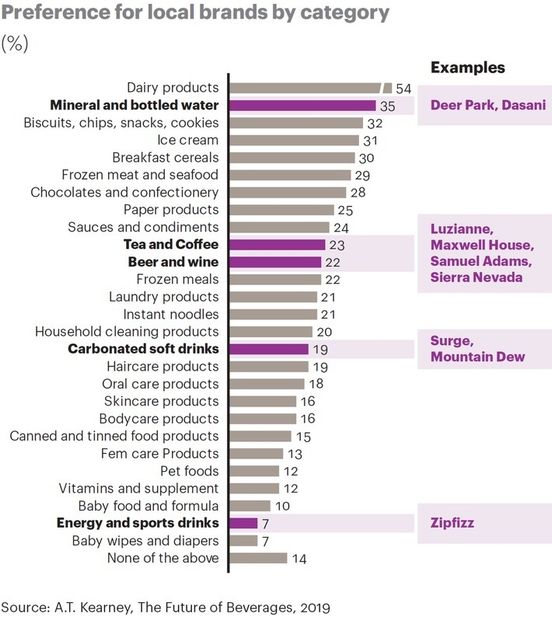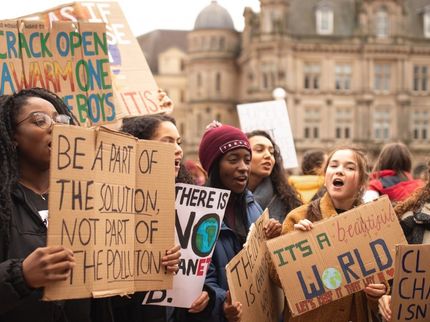Generation Z puts beverage industry to the test
Younger customers prefer to drink regionally and healthily
Advertisement
The thirst for healthy and environmentally friendly drinks is growing. Especially among the younger generation, the products of smaller brands increasingly end up in the glass. "The future of the industry will depend decisively on whether production, sales and marketing can meet the demands of young customers," says Axel Erhard, Partner at management consultancy A.T. Kearney and consumer goods expert.

Future of Beverages.
A.T. Kearney
A recent study by A.T. Kearney analysed the future of the beverage industry. In addition to product, supply chain and brand areas, the study also examines the beverage consumption behaviour of Generation Z, i.e. those customers born between 1998 and 2017. One of the results: In their consumption they let themselves be guided more and more by their own values. In addition to personalized products and authenticity, they attach even greater importance to regionalism than their predecessors, especially when it comes to beverages. For example, mineral water ranks second among the product groups for which regional brands are preferred.
"Generation Z is also characterized by a strong health awareness - this is also being felt in the market for traditional soft drinks and alcoholic beverages: it is shrinking," Erhard says. In addition, there is regulatory pressure from politics, for example through the taxation of sugar. Consumers feel this and look for alternatives.
In addition to health aspects and regionality, young consumers also make their beverage choices based on the brand - but here increasingly in favour of smaller brands. For example, 52 percent of Generation Z in Germany have little or no trust in major brands. Only 17 percent say this about small brands. For a generation that is largely online, more and more producers are focusing on direct sales: AmazonFresh or the rapidly growing startup Flaschenpost are setting the pace. They offer a large selection of smaller brands, deliver directly to the customer and have more and more private labels in their assortment. "Established beverage manufacturers should analyse the image of small, strongly growing brands and take up their strengths. When it comes to sales and marketing, they can still learn a lot from them," says Erhard.
Note: This article has been translated using a computer system without human intervention. LUMITOS offers these automatic translations to present a wider range of current news. Since this article has been translated with automatic translation, it is possible that it contains errors in vocabulary, syntax or grammar. The original article in German can be found here.



























































